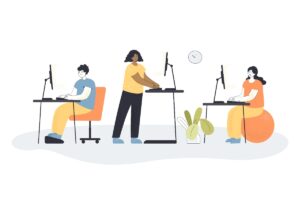Sleep is a vital part of our everyday wellbeing and our future health. Better sleep can strengthen our resilience and improve our productivity. So how can we get better sleep?
10 tips for getting better sleep
- Go to bed – It sounds a little simplistic. But how many of us have had that experience of knowing that we should go to bed but letting that inner voice be overcome by one more show on Netflix, a bit more social media or finishing off that work project. If we don’t try to sleep then we won’t get more!
- Set a schedule. Work out when the best time for you to nod off tends to be and try and structure your evening so that you can make that your regular time. A regular schedule can mean more regular sleep.
- Create the right environment – A quiet, dark bedroom at the right temperature can aid our sleep. Especially when its free from distractions like noise and TVs. Which brings us to…
- Avoid screens – the blue light frequencies from screens can interrupt our natural biorhythms and contribute to impaired sleep. Avoid screens in the hours before bedtime. Resist the temptation for more late night scrolling by keeping your room screen free (or use night shift mode to reduce screen effects if the temptation is just too great).
- Let go of worries. We’re all familiar with the way lying there worrying can impede sleep. Make parking your worries part of a sleep routine. Try writing down what you’re worrying about and leaving them outside the bedroom. Or develop a meditation practice to aid relaxation and sleep.
- Eat for sleep. Eating foods rich in magnesium, tryptophan and proteins that aid relaxation or boost the relaxation hormone serotonin can aid sleep. As can cutting out foods that can impair sleep. So bananas, oats and almonds are in and alcohol, spicy foods and coffee are out. Some practitioners also recommend eating earlier and avoiding food in the hours before bed.
- Get Active – Research shows that moderate daily aerobic exercise (taken in the daytime and not too close to sleep) increases the amount of deep sleep in respondents. Given all the other benefits of exercise then incorporating a bit more movement to get our hearts working and blood pumping is a great investment in our resilience.
- Find the light – Whilst sleeping in a dark room can help with sleep, getting more natural light can also improve sleep quality. A recent study of 700 people found that spending 1 to 2 hours per day in bright rooms or outdoors had improved sleep quality.
- Make your bedtime reading more sleep inducing. Reading before bed can be a good way of winding down and avoiding more screen time. You could choose a really sleep inducing novel. Or check out our reading list on books about sleep.
- Get help. If you’ve identified getting better sleep as a key part of developing your resilience then get help. Here at Cognomie a number of our transformational coaches specialise in sleep improvement. Working with a supportive coach can help make improvements more quickly.
That’s our starter for 10, hopefully some of these might help you.
What are you sleep tips and tricks? What’s worked for you for better sleep?
Want to find out more about sleep and the other foundations of Mental Fitness?
Sleep is just one of the foundations of Mental Fitness. Looking at all of the foundations in the whole is how we truly improve our Mental Fitness, and then wellbeing and performance. Do you want to learn how your own Mental Fitness can be the framework for understanding how you can develop greater self-awareness and grow in your own capability and resilience?
Or, if you play a role in your organisation’s development and that of those who work with you and their Mental Fitness, we’d love to talk.
SLEEP
We’ve created a book list that focusses on sleep, if you like to read (especially before bed!), then check out our Sleep Reading List on our bookshop.
COACH
If you work in HR or People Management, experience Transformational Coaching for yourself with a FREE 1 hour coaching session with one of our highly experienced Coaches.
























